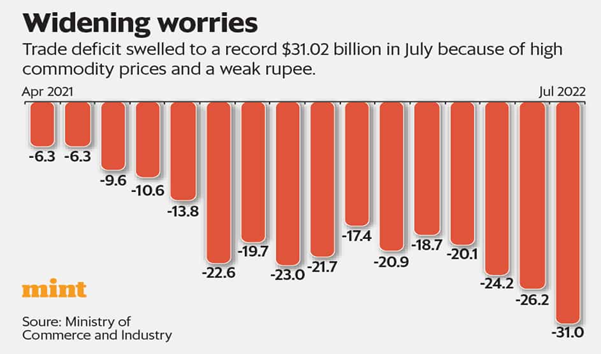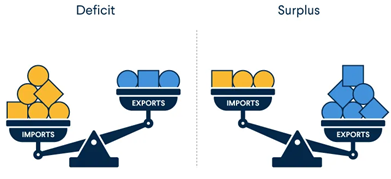Context

India’s trade deficit has widened to a record $31.02 billion in July thanks to contracting merchandise exports and a rise in imports.
- This is a three-time increase from the $10.63 billion trade deficit reported in July last year.

What is the trade deficit?
- Simply put, the trade deficit or negative balance of trade (BOT) is the gap between exports and imports.
- When money spent on imports exceeds that spent on exports in a country, a trade deficit occurs.
- It can be calculated for different goods and services and also for international transactions.
- The opposite of a trade deficit is trade surplus.

Causes
- There are multiple factors that can be responsible.
- One of them is some goods not being produced domestically.
- In that case, they have to be imported.
- This leads to an imbalance in their trade.
- A weak currency can also be a cause as it makes trade expensive.
Impacts
- If the trade deficit increases, a country’s GDP decreases.
- A higher trade deficit can decrease the local currency’s value.
- More imports than exports, impact the jobs market and lead to an increase in unemployment.
- If more mobiles are imported and less produced locally, then there will be less local jobs in that sector.
- Initially, it increases the standard of living, as residents have access to large varieties of products.
- If the trade deficit persists, then the government needs to find more foreign exchange to bridge the gap, which leads to the weakening of the local currency.
- A higher trade deficit leads to jobs being outsourced to foreign countries as more imports lead to fewer job opportunities.
- Demand for imported goods leads to a decline in demand for locally made goods, which leads to the closing of factories and the associated job losses.


